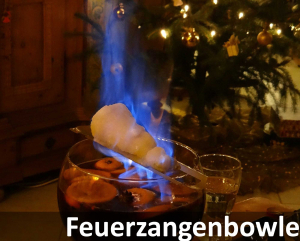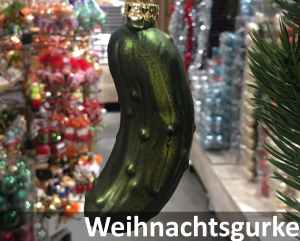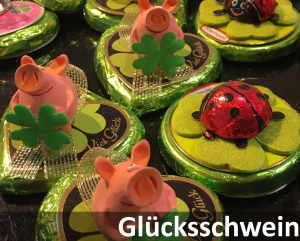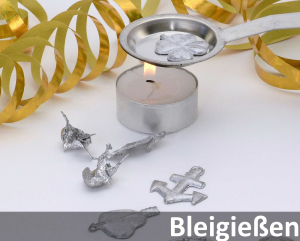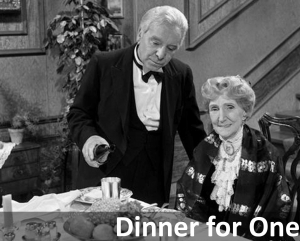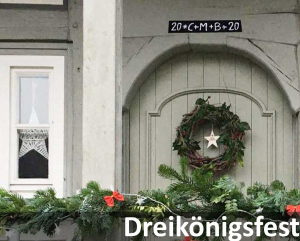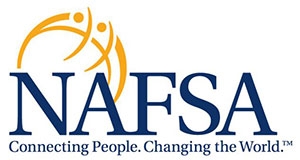 The following information is my interpretation of these traditions based on my personal experiences through the years. There are, of course, many more unique traditions not mentioned here.
The following information is my interpretation of these traditions based on my personal experiences through the years. There are, of course, many more unique traditions not mentioned here.
I hope you discover something new or maybe have something to add to the list or challenge? I would love to hear what you think after reading this.
Have you ever heard of these traditions?
Fire tong punch
Mulled wine, or Glühwein, certainly has enough power on its own to warm you up from the inside on those cold December nights while strolling through the Christmas markets.
But this beverage is next-level. It is an incredibly potent drink created when a rum-soaked sugarloaf (Zuckerhut) is set on fire and as the sugar slowly melts, it drips down drop by delicious drop into the mulled, spiced wine below.
I have to admit, I was never brave enough to try it. Have you?
Christmas pickle
Beautiful glass ornaments come in all shapes, colors, and sizes and are sold all over Germany this time of the year. It is also not uncommon to see a pickle shaped ornament in the selection at the stores. I grew up with the assumption that the pickle ornament came from Germany. But when I asked the locals about its meaning and history, I could not find anyone who could explain it, let alone had heard about it. So I was curious to find out … here is just one theory I discovered.
Do you hang a pickle ornament on your tree? I don’t.
Good luck pigs and lady bugs
Starting in December, these cute little marzipan pigs and chocolates wrapped up to look like lady bugs start showing up at bakeries and grocery stores. (They aren’t always sold with the four-leaf clover like in this photo is from our local bakery.)
Early on, I never really gave much thought to them nor the reason behind it all until I asked a friend to explain it. He told me they are sweet little symbols of luck, among many other symbols in Germany. It is common and nice gesture to give them as small gifts to friends and families to bring good luck and fortune to the new year. Learn even more about their origins here.
What is a symbol of luck in your country/culture?
Pouring lead
This is a favorite tradition to do with a group of friends or family at New Year’s Eve, or Silvester before the fireworks start.
Until I moved to Germany, I had never heard about it. Small figures made of lead are melted on a spoon over a flame and then placed in cold water. The instant solidification of the material in the water creates bizarre figures, which, according to superstition, are supposed to give the person who poured it an indication of their fate in the new year, as a kind of oracle.
The good news: Since 2018, sets with a lead content higher than 0.3 percent can no longer be sold in the EU due to the negative impact of the heavy toxic metal. Nowadays, you can only find sets with wax.
What is your way to predict the future of the new year?
Dinner for One
This is by far one of the more perculiar traditions to me but a very much-loved one for Germans.
It is an 18-minute sketch by the English comedian Freddie Frinton with his partner May Warden.
May Warden plays “Miss Sophie” and Freddie Frinton is the butler “James”. Like every year, “Miss Sophie” celebrates her 90th birthday together with her friends. However, she does not want to accept the fact that the invitees are gradually no longer alive. So her butler has not only the task of serving the food and drinks, but also of drinking and eating for the invited but prevented friends.
After I watched it the first time, I could appreciate the slap-stick humor of the drunken butler doing his best to serve the guests, but still to this day wonder, why does this have cult status here? I am not sure, but I don’t believe it is known anywhere else.
No matter, I have since adopted this tradition at my own house and New Year’s Eve is not the same without it. As they say, “The same procedure as every year.”
Have you ever watched it or heard of it?
Three King’s Festival (Epiphany)
Since I am not an expert, I won’t go into detail about the religious and historical aspects, rather, prefer to focus on the cultural traditions practiced in the region of Germany where I live:
What is one tradition which takes place in the neighborhood?
On January 6th, children dress up as the three magi, or wise men. The children are called the Sternsinger, or carolers. They visit homes in their neighborhood to sing, bless them, and collect donations for charity. This tradition can be traced by to the 16th century.
What is the meaning behind the chalk markings with letters and numbers above the front doors of some homes?
As mentioned above, a very old custom on Epiphany is to bless the houses. To do this, the carolers write the letters C + M + B in chalk with the century and year written before and after.
The letters stand for “Christ + Mansionem + Benedicat” = “Christ schützt dieses Haus” = “Christ bless this house”.
Are you familiar with this custom?
Do you have carolers and the blessing on your house?
#FrontlineLove
#FrontlineHeroes
#COVIDHeroes
#InThisTogether

